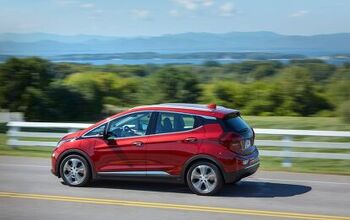The War On Drivers: "Car-To-X" Communication System Testing Begins
Though the idea that there is a “war on cars” appeals to certain segments of society, there’s little evidence for any such effort. On the other hand, it’s pretty clear that there’s a “war on drivers” on, and it’s being led by the automotive industry. On the one hand, cars are being ever-more laden with distracting gizmos and toys, while simultaneously, companies are testing systems that minimize the need for drivers at all. Though Google’s autonomous cars get a lot of media play in this country, another system is moving Europe towards a similar endgame. Known as “Car-To-X,” the system allows cars to swap information like speed and direction, not just with each other but with traffic lights and traffic data collectors. The idea is to avoid traffic and crashes, by warning drivers of oncoming traffic in a left-hand turn scenario, for example. Because who wants to use their eyes to make sure they’re safe when technology can do it for you?
According to Autobild, the first public German test of the system will begin next spring, with 120 vehicles taking part. GM is currently testing a similar system. If all goes according to plan, systems like this and Google’s autonomous technology will fulfill GM’s prediction that autonomous vehicles will be a reality by 2020, and the war on driving will be won. Or lost, depending on your perspective.
More by Edward Niedermeyer

































Comments
Join the conversation
I suppose a compatible device for pedestrians and bicycles will be designed that warns a vehicle of practically stationary things like pedestrians, bicycles, and posts along the route, that broadcasts "I AM NOT MOVING,I AM NOT MOVING, I AM SLOW AS HELL", to all the new system equipped vehicles." But pedestrians are transient obstacles, short-lived, unworthy of protection, in their free state. Bicycles are a bit more difficult than cars, but maybe a modified pedestrian device could be used, that simply forces motor vehicles to stop, remain fixed in place for several seconds while they clear the traffic area. You could require it in the helmets that you'd make them wear. And WHY not Pedestrian helmets, too? They'd be required within 100 ft of a motorway, be as garish as possible (ie TRULY HIDEOUS), and a 500 point penalty to your total trip score if you struck one. Pedestrians with non-functioning/no helmets would be fair game, and be a bonus, for drivers quick enough to remove them from the map.
I just want to receive info FROM traffic lights to know when they will change so that I can better set my speed & time them.
I have been forecasting these developments for a while. The revealed* preference of Americans is that they do not want to drive. The technology is now an optional feature on "luxury" cars. In a few years it will be available on all cars. Then it will be mandatory, and non-computerized vehicles will be banned from the road. The only places to drive will be closed courses. We, car-nuts and gear heads, will walk around saying: "Celui qui n'a pas vécu avant la Révolution ne connaît pas la douceur de vivre" ("Those who didn't live before the Revolution do not know the sweetness of life") -- Talleyrand (1754 – 1838) But the fact is that we now have indoor plumbing, and non-smoky light. The truth about cars is that driving has become a pain because of traffic, SUVs, stop-light cameras, and a thousand other annoyances. My father bought a 55 Chevy convertible when it was new, and on a summer evening he would take us out for a drive. It is not something I would do now, nor would my children even think of doing. So I will nap and my car will drive, and we will all be better off. *A revealed preference is what people do as opposed to an expressed preference, which is what they say.
No the truth is that we don't want to drive ALL the time. Sometimes I like to rev up the engine and sometimes I would just like to get some reading and work done. I, for one, can't wait until the fully automated cars are here. Too bad our broken legal system is hindering the process. Even if automated cars are proven safer vs human driving, lawyers will love the deep pockets of the auto companies for that 1 mistake the computer makes.